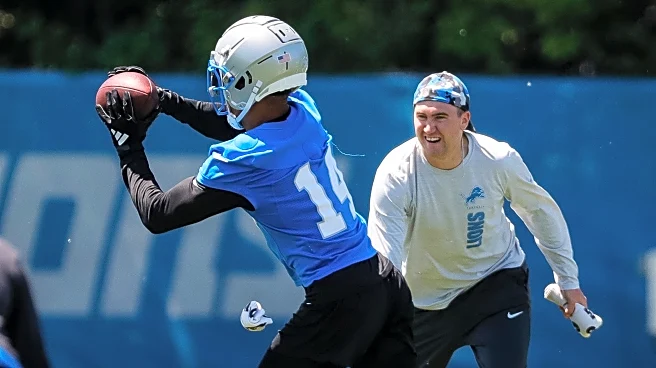What is the story about?
What's Happening?
The Washington Capitals are gearing up for the 2025-26 NHL season with a schedule that promises excitement and challenges. The team, which led the Eastern Conference with 111 points last season, will feature prime-time games and a series of homestands. A significant highlight is Alexander Ovechkin's pursuit of his 900th career goal as he enters his 21st season. The Capitals will open their season against the Boston Bruins on October 8, followed by a four-game homestand against teams like Tampa Bay and Minnesota. The schedule also includes a Halloween game against the New York Islanders and a New Year's Eve match against the New York Rangers. The Capitals will face a rigorous six-game road trip in January, testing their depth and resilience.
Why It's Important?
Ovechkin's milestone chase adds a layer of excitement to the Capitals' season, potentially boosting fan engagement and attendance. The team's performance in early homestands could set the tone for their playoff aspirations. With the NHL pausing for the 2026 Winter Olympics, managing player fatigue and maintaining momentum will be crucial. The Capitals' ability to replicate last season's success will depend on their defense and the productivity of their second line. Achieving another top-three finish in the Metropolitan Division is within reach if they capitalize on home games and navigate their challenging road trips effectively.
What's Next?
The Capitals will focus on securing early points during their October and November homestands. The team will need to strategize for the January road trip, which could impact their playoff positioning. Ovechkin's pursuit of 900 goals will be a focal point, potentially influencing team dynamics and media coverage. The Capitals will also prepare for the Olympic break, ensuring players return in peak condition for the season's final stretch.
Beyond the Headlines
Ovechkin's chase for 900 goals not only highlights his individual legacy but also underscores the Capitals' reliance on veteran leadership. The team's schedule reflects strategic planning to maximize home advantage and manage player workload. The Olympic break presents an opportunity for players to rest and recover, but also poses challenges in maintaining team cohesion and performance levels.

















